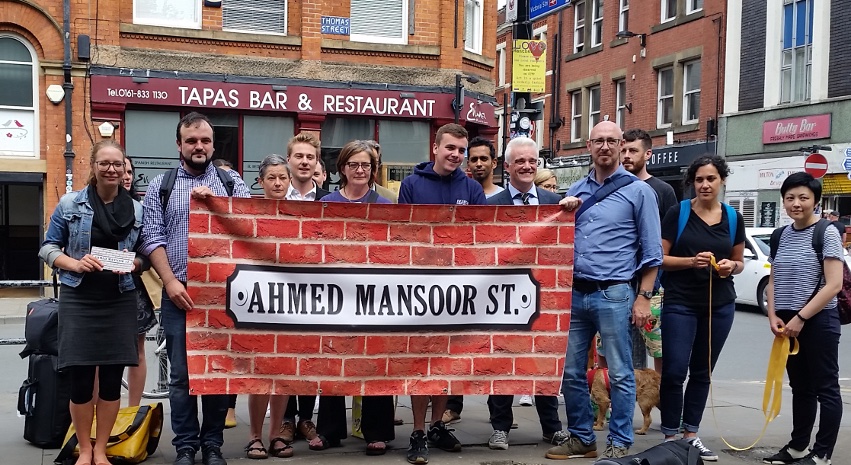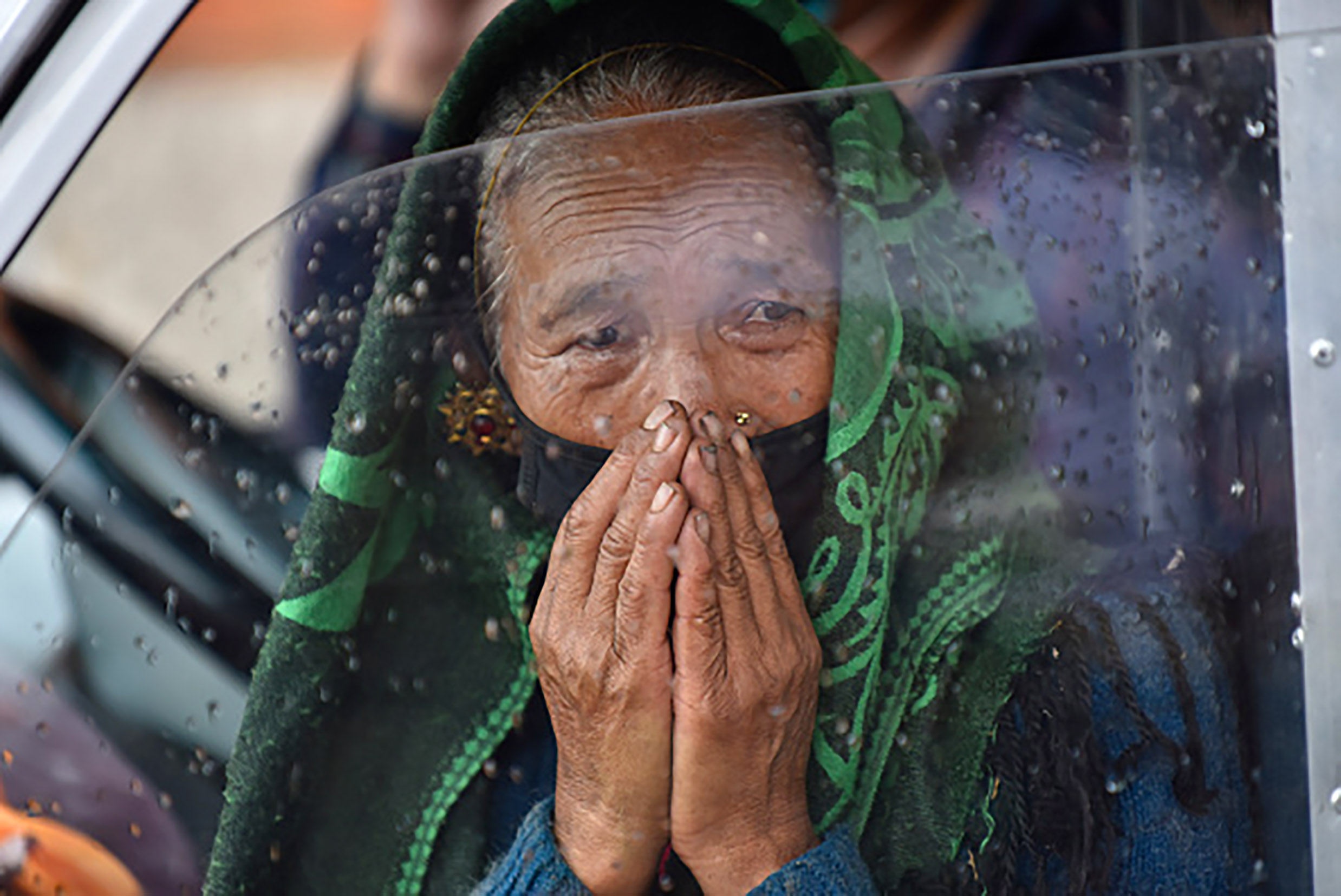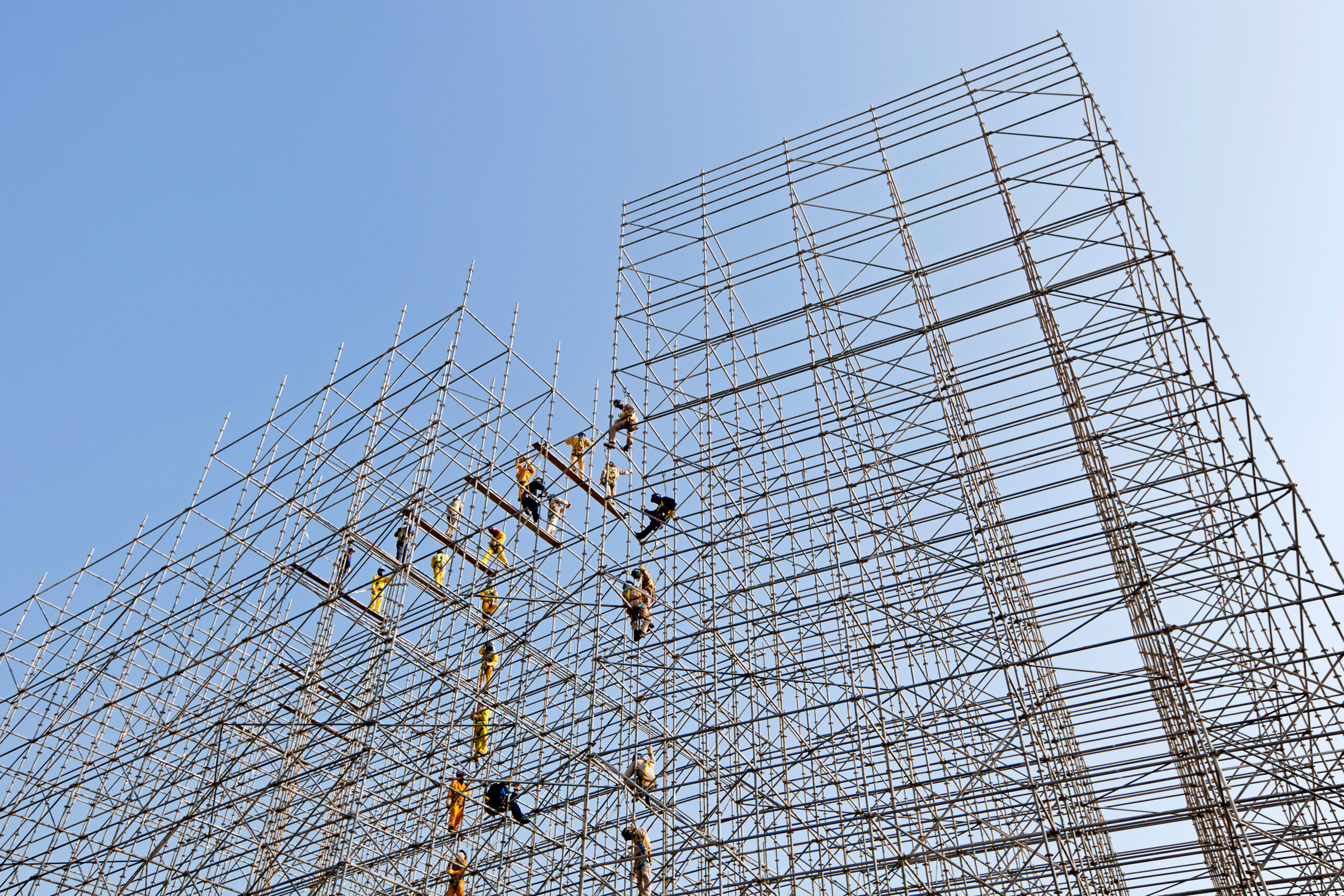
A coalition of five human rights NGOs has urged Manchester City Council to make a public call on the government of the United Arab Emirates to release Ahmed Mansoor and others in the UAE who have been unfairly imprisoned for expressing criticism of its government.
ALQST for Human Rights, the Bahrain Institute for Rights and Democracy, the Emirates Detainees Advocacy Centre, FairSquare and the Gulf Centre for Human Rights said in a letter to Manchester City Council leader Bev Craig, that the council has a deep and long-standing relationship with entities controlled by individuals operating in leadership roles within the highest echelons of the UAE government, and that this “places upon the council a special responsibility to show support and solidarity with victims of repression by that government”.
The council has a joint venture with the same organisation, controlled by the UAE’s ruling family, that owns Manchester City Football Club.
The letter was sent in the run-up to the UAE’s hosting of the United Nations climate conference COP28, which starts later this month and which will place the UAE’s record on human rights and climate change in the global spotlight. The letter highlighted the case of the Emirati activist Ahmed Mansoor, who has been arbitrarily imprisoned in isolation since security forces raided his home just before midnight on 20 March 2017. The council has not responded until now.
“Politicians in Manchester are as effusive about the benefits that the UAE has brought to Manchester as they are silent about the UAE’s human rights record and their close relationship with senior figures in its government,” said Nicholas McGeehan, co-director of FairSquare. “This is a further opportunity for Manchester City Council to demonstrate that its promotion of the city’s radical history is more than an empty branding strategy.”
“Citizens of Manchester have always been supportive of efforts to free our board member Ahmed Mansoor,” said Khalid Ibrahim, Executive Director of the Gulf Centre for Human Rights (GCHR). “We hope that the city council and all people of Manchester will join the efforts to help free Ahmed, and all human rights defenders detained in the UAE in violation of their rights to freedom of expression. Over 60 of them are being held in prison past the end of their sentences.”
In June this year, Manchester City Council sought to distance itself from its links to the UAE government, claiming to media that the Abu Dhabi United Group – the UAE private equity group behind both a joint property venture with the council and the ownership of Manchester City Football Club – is “a private entity not synonymous with the Abu Dhabi state.” The well-documented reality is that Manchester Life Development Company (MLDC) is a joint property venture between Manchester City Council and an entity that, according to its website, “is wholly owned by His Highness Sheikh Mansour bin Zayed Al Nahyan and … registered in Abu Dhabi.” Sheikh Mansour is the Deputy Prime Minister of the UAE and the Minister of Presidential Affairs.
Manchester City Council leader Bev Craig and CEO Joanne Roney are both directors of MLDC, alongside Simon Pearce, a Special Advisor to the Chairman of the Abu Dhabi Executive Affairs Authority, Khaldoon Al Mubarak. The Abu Dhabi Executive Affairs Authority is “a specialized government agency mandated to provide strategic policy advice to His Highness Sheikh Mohamed bin Zayed Al Nahyan, President of the United Arab Emirates.”
In June, FairSquare published a report called Easy Cities To Buy, which documented how political leaders in Manchester and Newcastle have not only declined multiple opportunities to use their positions of influence to express criticism of serious and systematic human rights abuses in the United Arab Emirates (owners of Manchester City) and Saudi Arabia (owners of Newcastle United), but have effectively assisted these two deeply abusive and profoundly anti-democratic states’ efforts to set up ‘soft power enclaves’ in cities with proud histories of protest and dissent.
Asked about the report’s findings in the days after its release, Bev Craig told the BBC that “as a city we don’t shy away from [human rights]” and that if she was asked about human rights of any country, she would “give a clear answer”. The same month, Andy Burnham, the Mayor of Greater Manchester, was asked about “torture, detention, and the criminalisation of gay people” in the UAE and he responded that he based his judgment on these matters on “how they run Manchester City and what they do to improve life here [in Manchester]”, and praised their contribution to the regeneration of parts of the city, and said that these human rights issues were for the UK government to raise.


